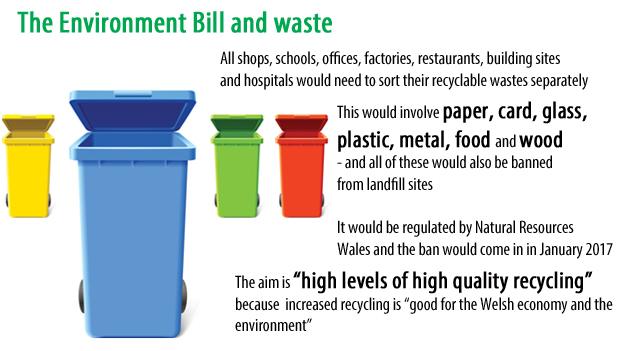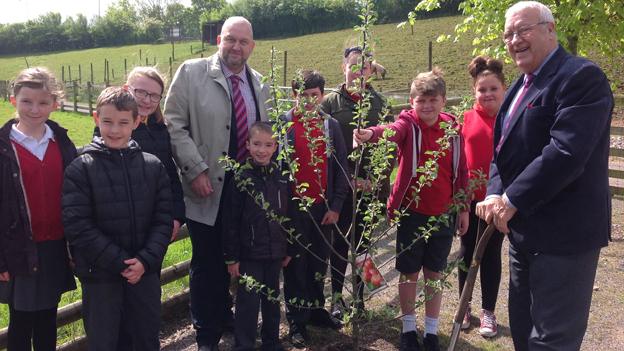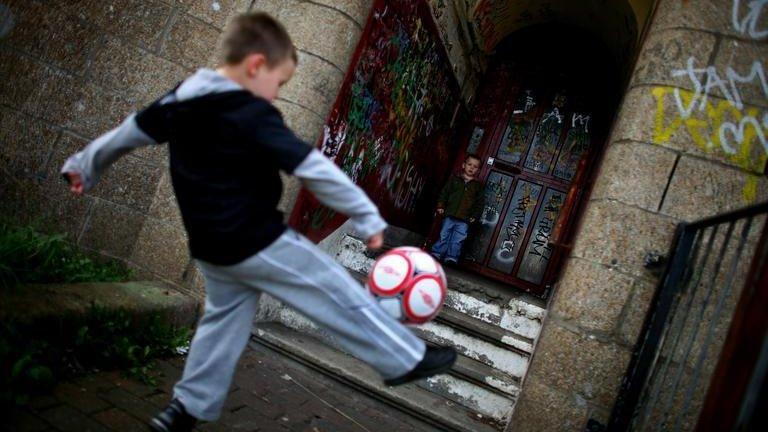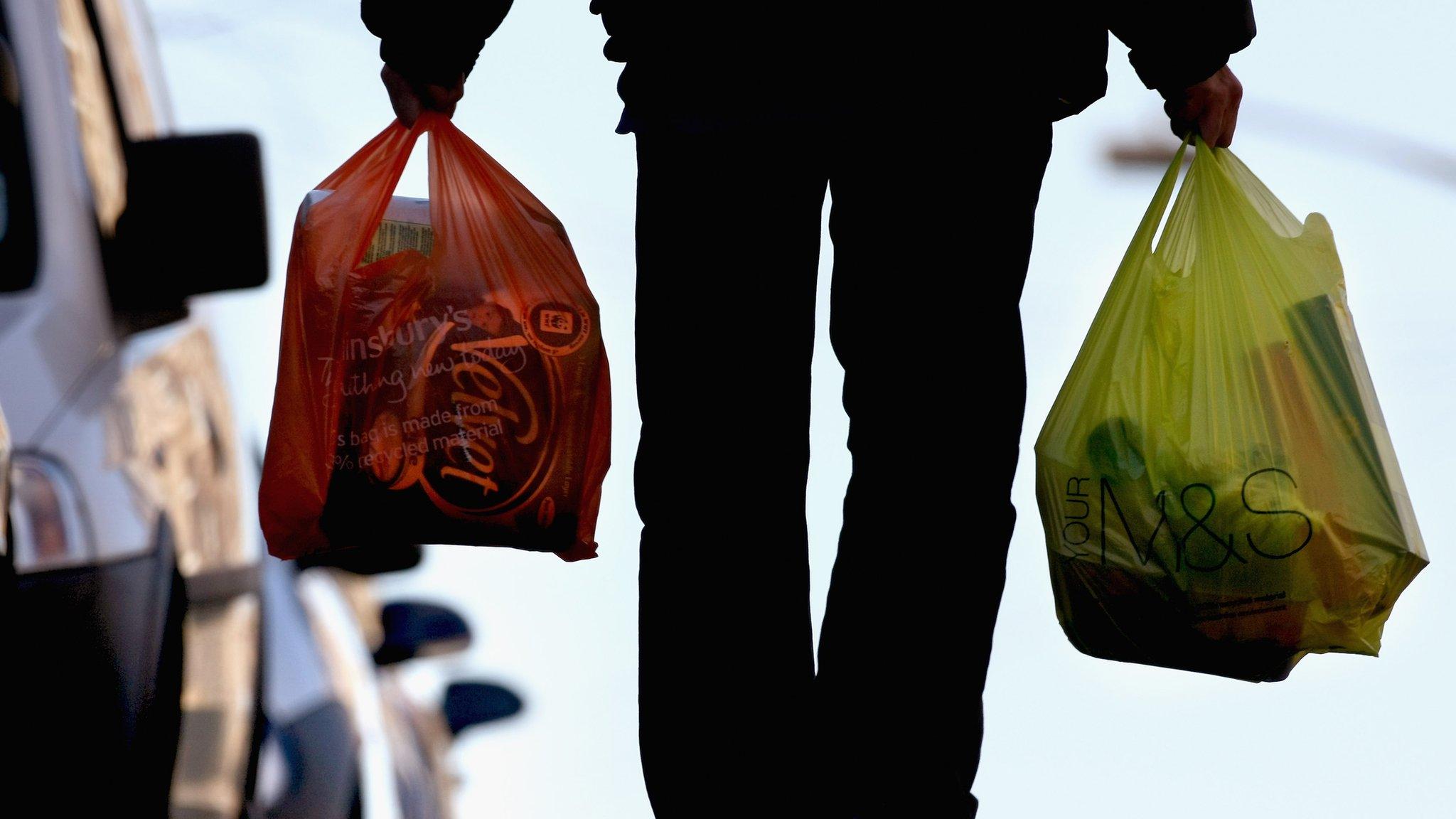Schools, businesses and hospitals face recycling law
- Published
Businesses of all sizes have been given food for thought by the proposed law changes
Schools, hospitals and businesses will have to separate their waste for recycling under new legislation being put forward in Wales.
Ministers want to improve on the estimated 38% of business waste being recycled at the moment.
The new environment bill also plans to extend charging on plastic bags to "bags for life".
A "state of the nation" environment report will have to be published every five years before assembly elections.
Details of the bill, which has been three years in the making, external, have been published and if it is passed it will become law next year.


The highlights include:
Extending the 5p charges on supermarket carrier bags to "bags for life" - not including hessian bags - which will see proceeds go to charities after retailers' costs are taken into account.
Natural Resources Wales (NRW) will be tasked with reporting on how well we are looking after nature, land, water and air - with a five-yearly report which will inform policy.
Businesses, schools and hospitals will be expected to separate card, wood and food wastes by 2017.
Five yearly targets on cutting greenhouse gas emissions - and by at least 80% by 2050.
A ban on food waste ending up in sewers - to stop the likes of "fatbergs" developing like the one found in Cardiff earlier this year
NRW will also have to produce area reports on the "bigger picture" of local environments - and work with other public bodies like councils more closely.

There is already a 70% target for recycling waste from households and business in 10 years time.
But estimates show business is barely recycling half of that target and half a million tonnes of potentially recyclable material goes to landfill.
The new powers on separating waste will be imposed on all shops, offices, factories, restaurants, building sites, schools and hospitals.
They would need to separate paper, card, glass, plastic, metal, food and wood before it is collected.
It is estimated it could benefit the economy by £52m over 10 years and prevent the equivalent of 2.4 million tonnes of CO2 being created.
But Denbighshire council in its response to the original White Paper, external expressed a concern that wood recycling would be difficult and that the proposals would "literally create a log jam" while businesses would struggle for space to store different waste.
It also believed households as well as businesses needed to be included and a "clear message" sent out to recycle as much as possible.
The deposit of fat is just under a metre wide

Carl Sargeant (centre) helps pupils from Ponthir Primary School at Cwmbran Community Farm plant a tree for the Pollinators for Life project backed by the Welsh Government's Nature Fund.
Trials are already taking place in how the NRW could work in local areas - including in Rhondda, where officers have been working with the fire service to try to reduce the risk of grass fires.
And in the Dyfi valley, officers are working in upland areas to store water and reduce the risk of flooding.
The environment bill is intended to "join the dots" with the new planning and future generation bills, which will ensure councils and other public bodies put the well-being of people and communities in what they do.
Environment Minister Carl Sargeant said: "This bill will ensure the decisions we take in relation to our natural resources support our economy, our communities and our environment".
- Published5 February 2015

- Published28 November 2014

- Published24 October 2013

- Published16 July 2013
